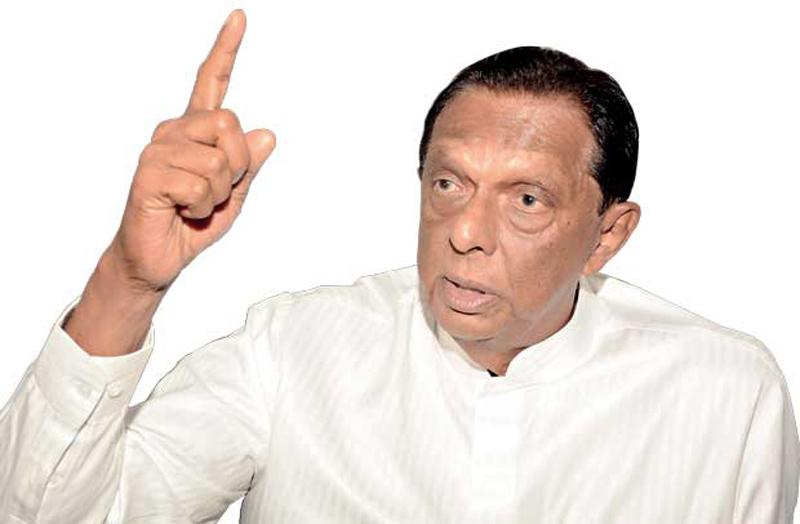
The new government has transformed the land policy to be investor and development friendly to accelerate economic growth and bring prosperity to the people, Minister of Tourism Development, Christian Religious Affairs and Land, John Amaratunga told the Sunday Observer.
He said, unlike in the previous regime the current policy on land is development oriented and investor friendly to boost development by putting unutilised land into productive use that will benefit the economy.
“We are doing our best to adopt a flexible policy on land, to entice foreigners to come in and invest in industries and commercial establishments that will generate income to the country and employment opportunities to the rural masses”, Minister Amaratunga said.
With regard to the ban on foreigners buying lands for investment purposes to be relaxed under amendments to the Land Ordinance, the Minister said, lands in the country belong to the State on the one hand, and to the Land Reform Commission (LRC), on the other.
He said, the government considers proposals by investors, whether for agriculture, industry or tourism, in respect of bare lands in both sectors.
Having examined the project proposals the authorities will release the land subject to payments stipulated by law. In most cases State lands are given on lease. Land ownership to foreigners is restricted at the moment.
However, the Minister said, at the next budget proposals it may be approved for ownership as well. However, it is very difficult at the moment to state the conditions on which ownership will be granted to foreigners.
At present, there is a great deal of confusion with regard to the availability of land for public purposes in the state and LRC.
The government will move two Bills through the Ministry of Land with regard to grant of ownership which is held under different grants or permits issued from time to time to people. The first Bill will be termed Special Provisions Bill of Land. It envisages absolute grant for such permits and other grants by the President.
“The second Bill will be the Land Bank Bill which will cover all State, LRC and other lands controlled by other institutions such as the Mahaweli.The disbursement of land brought under the Land Bank will be considered by a special committee. The two Bills provide a great deal of relief to those holding different types of land grants and permits” Minister Amaratunga said.
He said, the second Bill will enable to identify all State lands which are available for various development projects.
At present, there is a great deal of confusion and also corruption in land administration under the various boards and departments.
The Minister refuted the allegation that the current government favours few countries in providing land, and said, the government will allocate land for mega development projects which will help the economy, irrespective of the country, that is able to bring in capital for speedy development.
‘We are not concerned whether it is Japan, China, Korea, India, USA or a European country from which foreign investments flow for development. Our concern is to boost development through foreign direct investments” Amaratunga said.
With regard to releasing land to displaced people in coastal areas earmarked for tourism development the Minister said, all aspects will be looked into in releasing land.The government will ensure a win win situation to all. Land Reform Commission Chairman T.A Sumanatissa Thambugala said the task of the LRC is to provide alternative lands to those from whom it was acquired in 1972 under the Land Reform Act. LRC has around one million acres of land acquired in 1972.
“There are lands undeclared and we are in the process of identifying them which is a cumbersome task as no proper data has been maintained. Land have been provided for tourism, agriculture and other purposes in Trincomalee, Batticaloa and Puttalam” Thambugala said.
He said, there has been no objections on lands acquired along the sea coast for tourism or other purposes. However, we will look into them case by case.
The Land Reform Commission was set up through the Land Reform Law of 1972 with authority vested to expropriate agricultural land above the specified ceiling such as 25 acres in the case of paddy land and 50 acres for other agricultural land. Besides, the LRC was vested with power to administer the alienation of expropriated land.
The 2016 budget made provisions to the Government to permit full ownership of land on identified investments, removal of the 15% tax imposed on leasing of land to foreigners, repeal the present Exchange Control Act and introduce an investor friendly Foreign Exchange Management Bill, income from dividends on investments made by non-citizens and foreign companies in listed shares through inward remittances to be exempted from Income Tax, to replace the current Board of Investment (BOI) by a new institution named the Agency for Development enabling the applications for foreign investments to be completed to allow companies to commence business within 50 days and investment related tax concessions to be provided to investors who invest in certain areas of the country considered to be less developed.
